The Only Non-Profit Organisation
in Singapore that provides
Social, emotional, and health services
to People in the sex industry.
We envision a fair and safe sex industry for everyone involved and
a society that respects sex workers, their clients, partners, and families.
2091
Alerts
Recorded
1,150,793
Given
Out
2091
Tests
Conducted
Running
The Only Non-Profit Organization in Singapore that provides Social, Emotional & health services to people in the sex industry.
We envision a fair and safe sex industry for everyone involved and a society that respects sex workers, their clients, partners, and families.
2091
Alerts
Recorded
1,150,793
Given Out
2091
Tests Conducted
Mission
Running

AS FEATURED ON
The Only Non-Profit Organization in Singapore that provides Social, Emotional & health services to people in the sex industry.
2091
Alerts
Recorded
1,150,793

Given
Out
2091
Tests
Conducted
We believe that condoning violence against sex workers undermines the principle of rule of law in Singapore.
There exists a sex industry in Singapore, and it is both a socially and politically accepted fact. What has not been mainstreamed is the fact that sex workers do not deserve to face violence and discrimination, that sex workers’ needs are equally important, and those needs need to be institutionalized.
We believe that condoning violence against sex workers undermines the principle of rule of law in Singapore.
We won’t recite the cliché. But there exists a sex industry in Singapore, and it is both a socially and politically accepted fact. What has not been mainstreamed is the fact that sex workers do not deserve to face violence and discrimination, that sex workers’ needs are equally important, and those needs need to be institutionalized.
We believe that condoning violence against sex workers undermines the principle of rule of law in Singapore.
We won’t recite the cliché. But there exists a sex industry in Singapore, and it is both a socially and politically accepted fact. What has not been mainstreamed is the fact that sex workers do not deserve to face violence and discrimination, that sex workers’ needs are equally important, and those needs need to be institutionalized.
What We Do
staff including current and former sex workers, as well as many passionate allies.
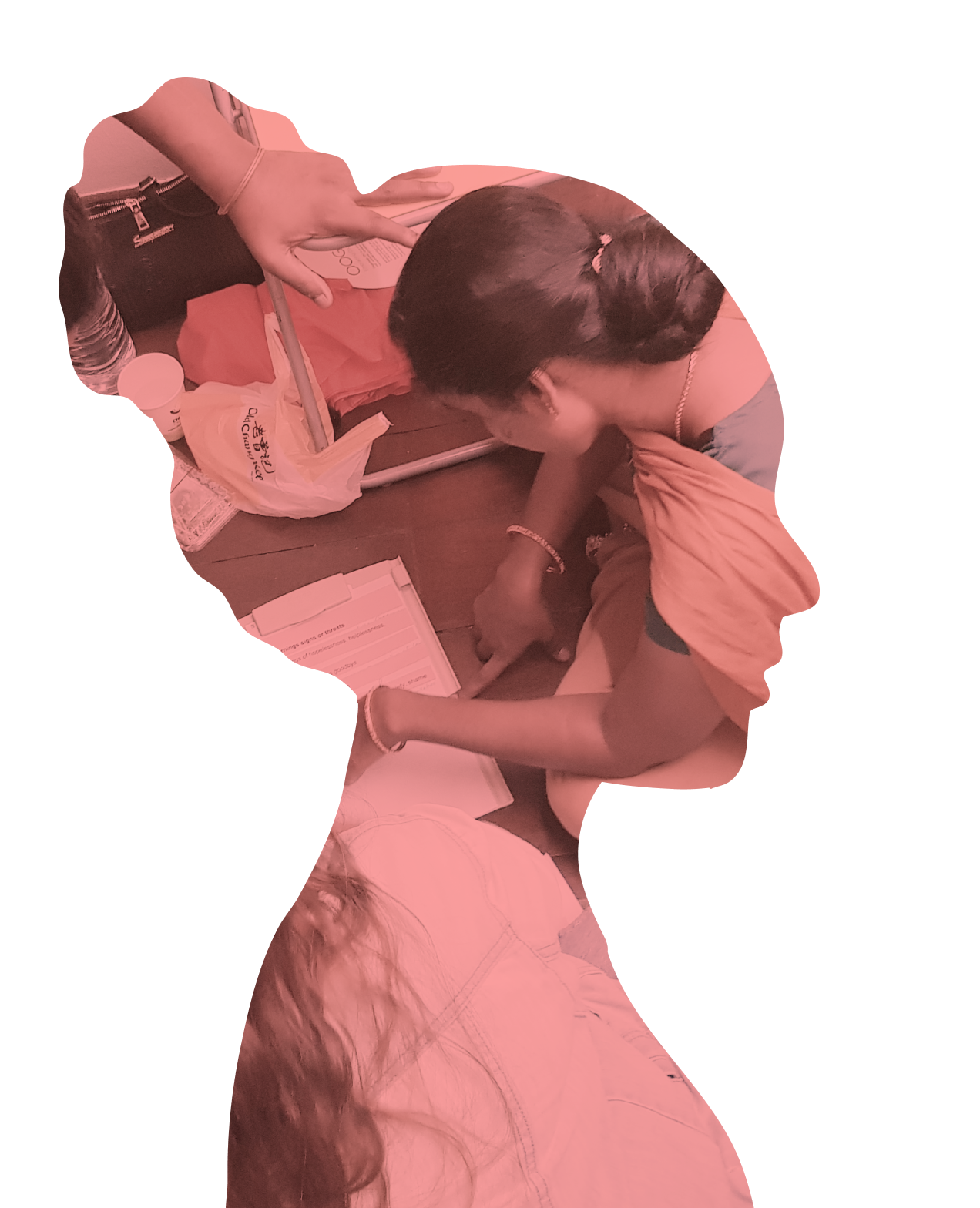

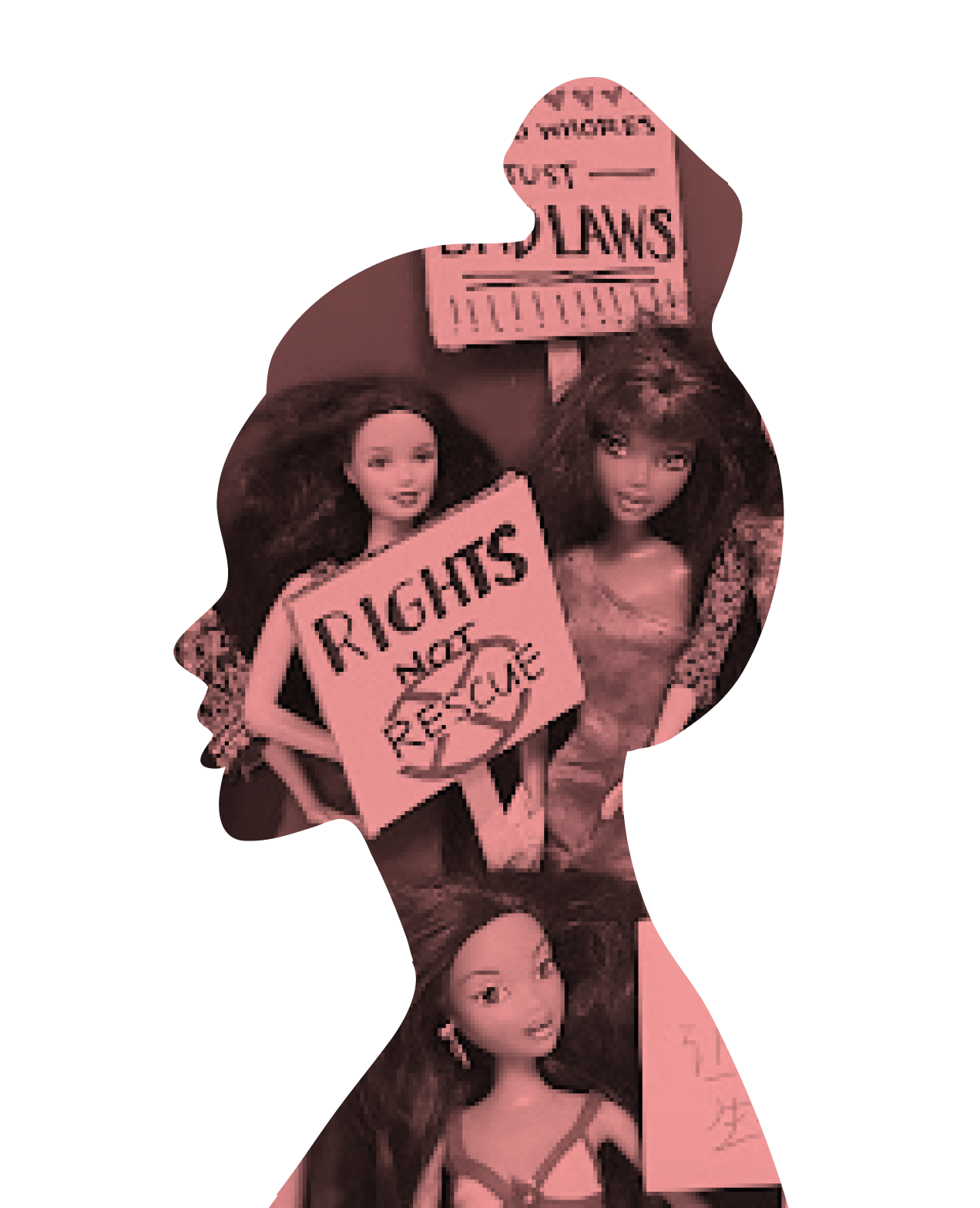
We place fostering of close relationships with the community at the forefront of what we do.
We center the voices of sex workers and key allies.
What
We Do

We place fostering of close relationships with the community at the forefront of what we do.

We center the voices of sex workers and key allies.

We provide counselling, practical advice, befriender services, and professional development for people in the sex industry.
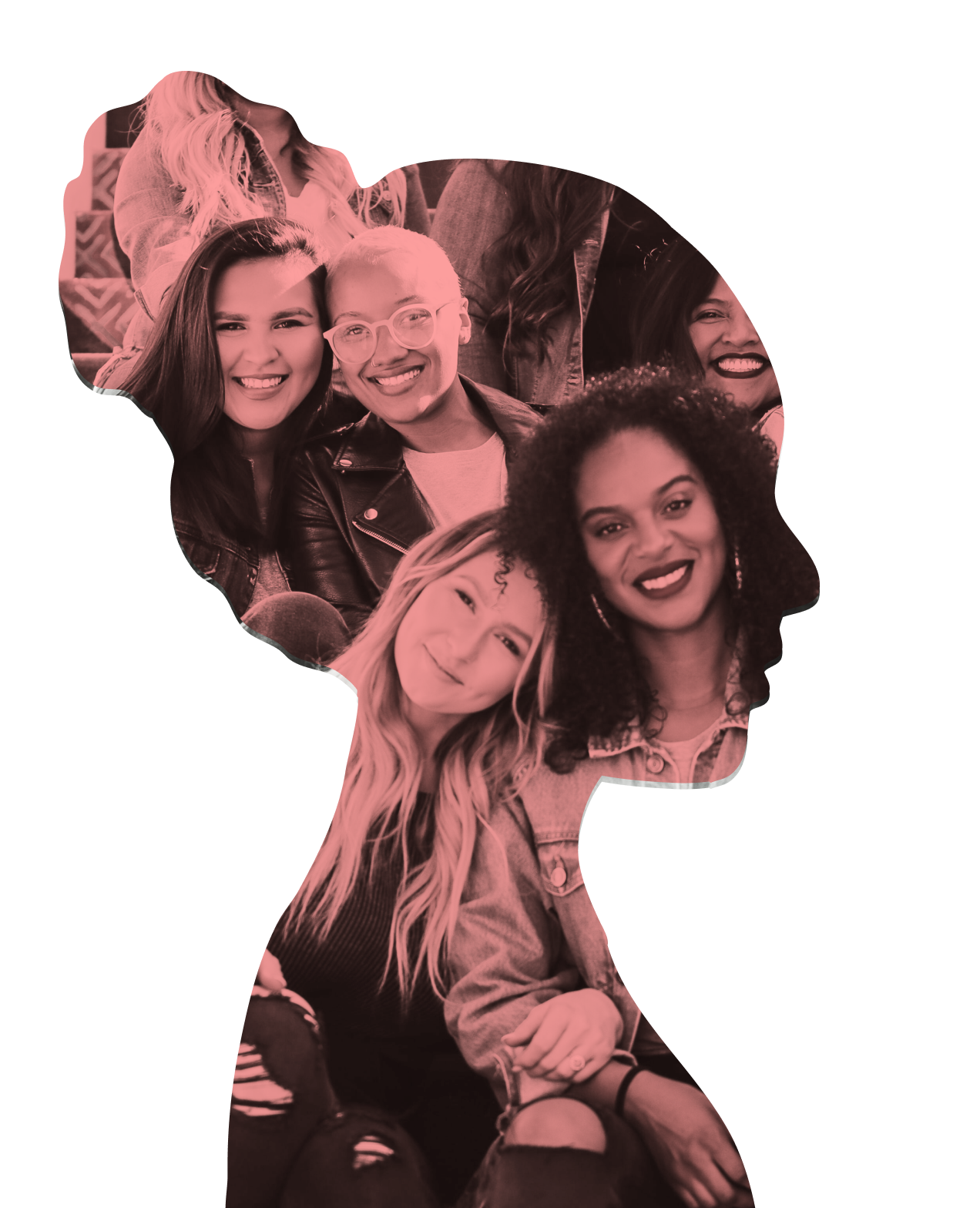



Sex work activism
lies in the intersection of work for Gender Equality, Racial Justice, Migrant Worker Rights, Labour Rights, & Harm Reduction.
What We Do


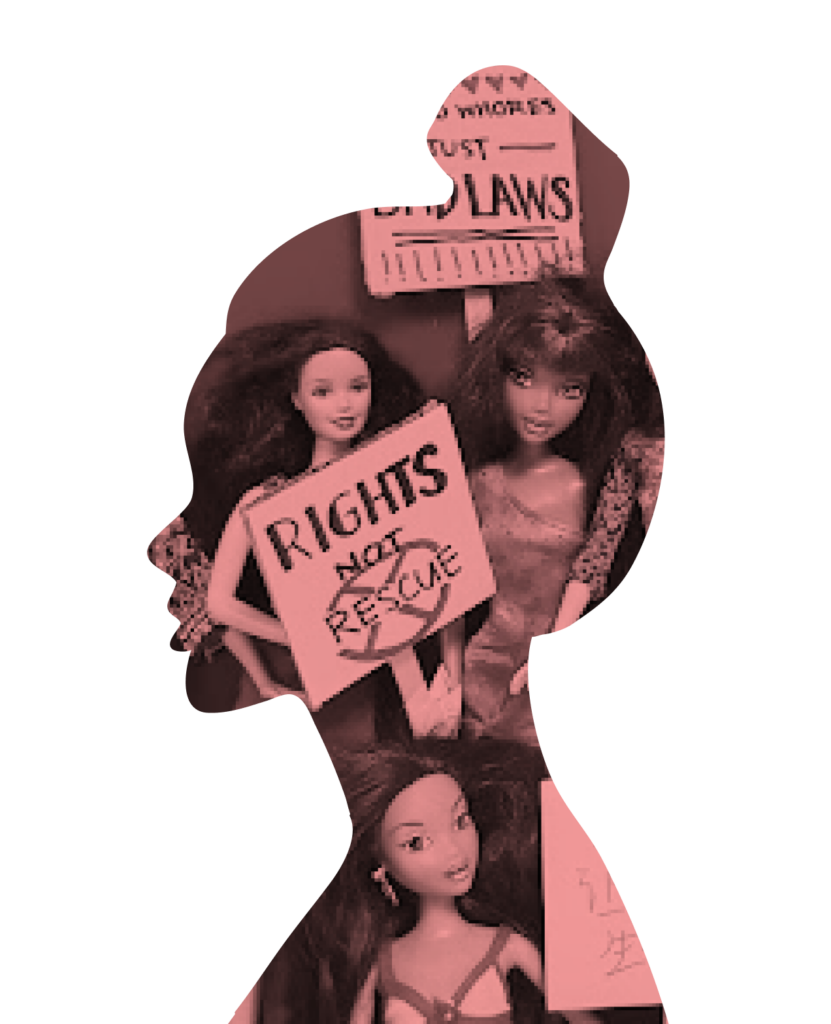
Sex work activism lies in the intersection of work for Gender Equality, Racial Justice, Migrant Worker Rights, Labour Rights, & Harm Reduction.

For Sex Workers
Social
Support
Legal
Knowledge
Sexual Health
Screening
For Sex Workers
Social
Support
Legal Knowledge
Sexual Health Screening
Case Management

Fact Finding

Advice

File The Case

Take Action

Support
Learn More
For Sex Worker
Social
Support
Legal
Knowledge
Sexual Health
Screening
Case Management

Fact Finding

Advice

File The Case

Take Action

Support
For Sex Workers
We provide services such as Social Support, Legal Knowledge, and Sexual Health Screening for sex workers. Need someone to talk to about something that happened at work or due to work? Below is an overview of how Project X manage case reports. Make an appointment with us and let us help you identify what to do next!

Fact Finding

Advice

File The Case

Take Action

Support
Case
Management

Step 01
Fact Finding

Step 02
Advice

Step 03
File The Case

Step 04
Take Action

Step 05
Support
Get Involved
Get Involved
Most Asked Questions
Article 3, paragraph (a) of the Protocol to Prevent, Suppress and Punish Trafficking in Persons defines Trafficking in Persons as the recruitment, transportation, transfer, harbouring or receipt of persons, by means of the threat or use of force or other forms of coercion, of abduction, of fraud, of deception, of the abuse of power or of a position of vulnerability or of the giving or receiving of payments or benefits to achieve the consent of a person having control over another person, for the purpose of exploitation. Exploitation shall include, at a minimum, the exploitation of the prostitution of others or other forms of sexual exploitation, forced labour or services, slavery or practices similar to slavery, servitude or the removal of organs.
On the basis of the definition given in the Trafficking in Persons Protocol, trafficking in persons has three constituent elements:
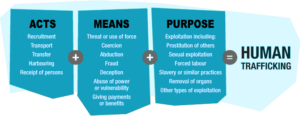
To ascertain whether a particular circumstance constitutes trafficking in persons, consider the definition of trafficking in the Trafficking in Persons Protocol and the constituent elements of the offense, as defined by relevant domestic legislation.
Trafficking is a serious crime. In reflection of this, Singapore passed the “Prevention of Human Trafficking Act 2014” in order to tackle all forms of trafficking—labour, sex, and organ trafficking. Project X similarly condemns trafficking and we do all we can to assist victims of trafficking.
However, from our many years working with the sex industry, we have observed that under current legal definitions — which set a very high bar for what is considered trafficking — only a handful of individuals would be classified as trafficked. Only five sex trafficking and one labour trafficking cases four cases have been prosecuted to date. We also caution against the conflation of human trafficking with sex work. Not all sex workers are trafficked, but the belief that they are tends to undermine and disrespect the consent of sex workers. Further, trafficking occurs across a range of industries, including domestic work and construction, not just the sex industry.
People in the sex industry can face a range of exploitative conditions which are seldom fully captured by the “human trafficking” framework. Many women in the sex industry choose this work because it is the best option available for them and do not want or need to be “rescued” or “saved.” We extend our services to all sex workers and believe that all sex workers — whether trafficked or not — deserve support and just treatment.
Most
Asked
Questions
Carol Leigh wrote in her essay, “It acknowledges the work we do rather than define us by our status.” We use the term to recognize that sex work is work, and to respect the labour involved in the work. The word “prostitute” has also evolved into a word with negative connotations and is often used as a derogatory term used to hurt or humiliate someone. We also now the the terms “escort”, “adult services provider”, “pro-domme” etc.
Article 3, paragraph (a) of the Protocol to Prevent, Suppress and Punish Trafficking in Persons defines Trafficking in Persons as the recruitment, transportation, transfer, harbouring or receipt of persons, by means of the threat or use of force or other forms of coercion, of abduction, of fraud, of deception, of the abuse of power or of a position of vulnerability or of the giving or receiving of payments or benefits to achieve the consent of a person having control over another person, for the purpose of exploitation. Exploitation shall include, at a minimum, the exploitation of the prostitution of others or other forms of sexual exploitation, forced labour or services, slavery or practices similar to slavery, servitude or the removal of organs.
On the basis of the definition given in the Trafficking in Persons Protocol, trafficking in persons has three constituent elements:

To ascertain whether a particular circumstance constitutes trafficking in persons, consider the definition of trafficking in the Trafficking in Persons Protocol and the constituent elements of the offense, as defined by relevant domestic legislation.
Trafficking is a serious crime. In reflection of this, Singapore passed the “Prevention of Human Trafficking Act 2014” in order to tackle all forms of trafficking—labour, sex, and organ trafficking. Project X similarly condemns trafficking and we do all we can to assist victims of trafficking.
However, from our many years working with the sex industry, we have observed that under current legal definitions — which set a very high bar for what is considered trafficking — only a handful of individuals would be classified as trafficked. Only five sex trafficking and one labour trafficking cases four cases have been prosecuted to date. We also caution against the conflation of human trafficking with sex work. Not all sex workers are trafficked, but the belief that they are tends to undermine and disrespect the consent of sex workers. Further, trafficking occurs across a range of industries, including domestic work and construction, not just the sex industry.
People in the sex industry can face a range of exploitative conditions which are seldom fully captured by the “human trafficking” framework. Many women in the sex industry choose this work because it is the best option available for them and do not want or need to be “rescued” or “saved.” We extend our services to all sex workers and believe that all sex workers — whether trafficked or not — deserve support and just treatment.
Most Asked Questions
Article 3, paragraph (a) of the Protocol to Prevent, Suppress and Punish Trafficking in Persons defines Trafficking in Persons as the recruitment, transportation, transfer, harbouring or receipt of persons, by means of the threat or use of force or other forms of coercion, of abduction, of fraud, of deception, of the abuse of power or of a position of vulnerability or of the giving or receiving of payments or benefits to achieve the consent of a person having control over another person, for the purpose of exploitation. Exploitation shall include, at a minimum, the exploitation of the prostitution of others or other forms of sexual exploitation, forced labour or services, slavery or practices similar to slavery, servitude or the removal of organs.
On the basis of the definition given in the Trafficking in Persons Protocol, trafficking in persons has three constituent elements:

To ascertain whether a particular circumstance constitutes trafficking in persons, consider the definition of trafficking in the Trafficking in Persons Protocol and the constituent elements of the offense, as defined by relevant domestic legislation.
Trafficking is a serious crime. In reflection of this, Singapore passed the “Prevention of Human Trafficking Act 2014” in order to tackle all forms of trafficking—labour, sex, and organ trafficking. Project X similarly condemns trafficking and we do all we can to assist victims of trafficking.
However, from our many years working with the sex industry, we have observed that under current legal definitions — which set a very high bar for what is considered trafficking — only a handful of individuals would be classified as trafficked. Only five sex trafficking and one labour trafficking cases four cases have been prosecuted to date. We also caution against the conflation of human trafficking with sex work. Not all sex workers are trafficked, but the belief that they are tends to undermine and disrespect the consent of sex workers. Further, trafficking occurs across a range of industries, including domestic work and construction, not just the sex industry.
People in the sex industry can face a range of exploitative conditions which are seldom fully captured by the “human trafficking” framework. Many women in the sex industry choose this work because it is the best option available for them and do not want or need to be “rescued” or “saved.” We extend our services to all sex workers and believe that all sex workers — whether trafficked or not — deserve support and just treatment.

